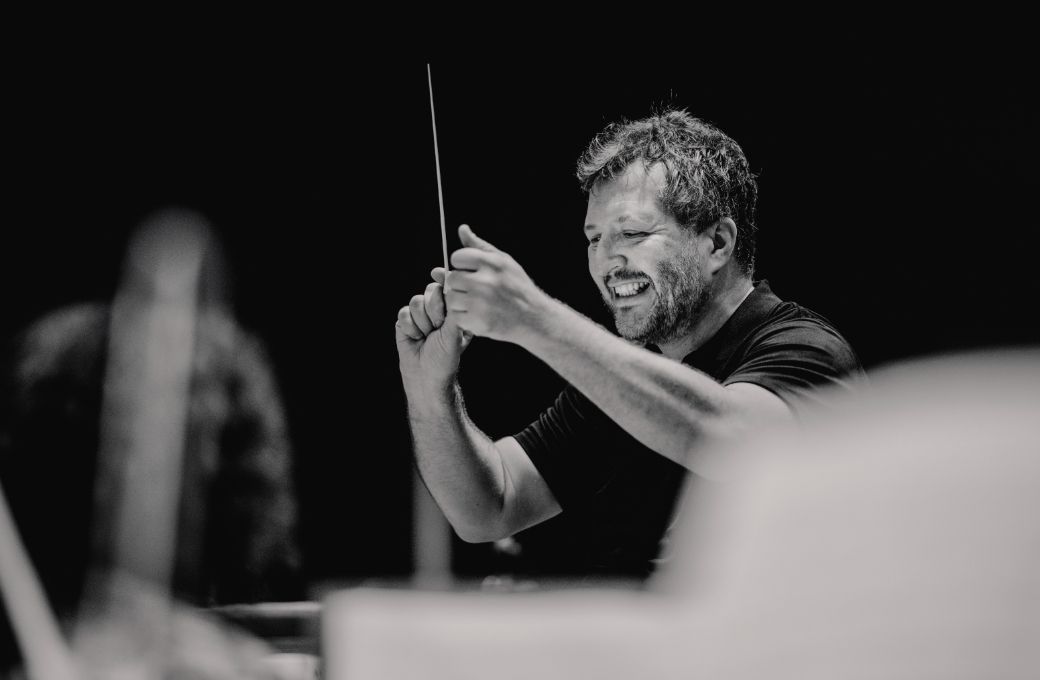Thomas Adès is probably best known in the musical world as a composer, but he’s also an in-demand performer and conductor. While I’ve heard lots of his music before, this Scottish Chamber Orchestra concert is the first time I’ve seen him conduct. He’s fascinating to watch on the podium.

His gestures are big but straightforward, always connected to what the music is doing, giving the impression that he has thought carefully about every phrase and is reliving in performance the careful work that has gone into rehearsal. It sounds obvious when you put it like that, but it’s surprising that lots of conductors don’t give that impression. He certainly brought out the best in Beethoven’s music for The Creatures of Prometheus, bringing to life its multiplicity of textures with lightness of touch and terrifically fast speeds in the overture, and his Haydn was lithe and energetic with every musical surprise cleanly articulated.
Soprano Emma Posman made a terrific guest artist, too, in an aria Mozart had written for interpolation into another composer’s opera. Her voice is clean and beautiful, crisp and bright above the stave, with the line always carefully floated. Her crystalline voice contrasted beautifully with the butter-wouldn’t-melt faux naïveté of the orchestral texture, brought to life with delicacy by the soft-focused SCO strings.
The contemporary music fared less well. John Woolrich’s tribute to Mozart The Theatre Represents a Garden started off as a fun enough twirl through several Mozartian quotations, seemingly having a giggle as it whirled its way through lots of different styles and moods. As it progressed, however, I kept wondering why Woolrich was choosing the Mozart moments he did. There was a notably lengthy quotation from Mozart’s Mass in C minor, for example: did Woolrich linger on that because it served the musical argument of his piece or because he particularly loves Mozart’s mass? What began as a tribute turned into a pastiche, with several uncomfortably sudden lurches on the way, and by the end I was drumming my fingers wishing for something more interesting.
Exactly the same was true of Judith Weir’s Heroic Strokes of the Bow. It’s a neat creative idea to take a picture by Klee and try to reimagine it as music, but it hammers obsessively on a small number of musical and rhythmic fragments in a way that becomes dangerously tedious before long. Fast-moving music alternated with slow, yet the whole never seemed to go anywhere much.
Thankfully Adès himself saved the show with his The Origin of the Harp. Composed in the 1990s, inspired by a picture of a lamenting water nymph who was turned into a harp, this was the premiere of a new version scaled up for chamber orchestra. Appropriately, considering the subject matter, it was all about transition, driven by fluid winds and ending with a storm of pizzicato strings to represent the harp. Here, however, the transitions felt both natural and narrative-driven. Exciting to listen to, this was music that always felt like it was going somewhere and Adès used every gesture to invest it with energy and life.


